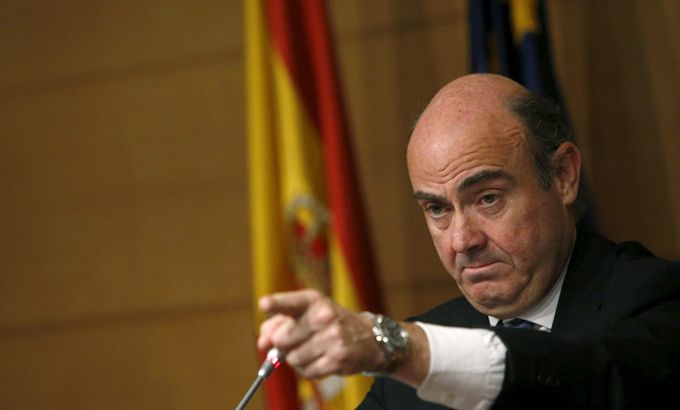World markets muted over Spain rescue deal
European shares gain early then falter after strong showing by Asian markets on back of $125bn Spanish bank bailout.

European and Asian stock markets have gained modestly a day after the eurozone agreed to lend Spain up to $125bn to save its struggling banks.
Madrid’s IBEX – by far the worst performer in 2012 among European indexes – was up 1.8 per cent, after gaining as much as six per cent in early trade on Monday.
Keep reading
list of 4 itemsChina’s economy beats expectations, growing 5.3 percent in first quarter
Inside the pressures facing Quebec’s billion-dollar maple syrup industry
Manipur’s BJP CM inflamed conflict: Assam Rifles report on India violence
Spain’s banking shares led the rally, with Banco Santander rising 2.8 per cent and Bankia, which had requested 19 billion euro in aid to cover its bad loans and assets, jumping almost eight per cent.
|
With a recession in Spain lasting until the end of 2014 at the very least, a banking bailout will push Madrid into asking for a sovereign bailout. Its current bailout has no austerity string attached. More austerity would be a disaster for Europe’s fourth-largest economy. Portugal, Ireland and Greece must be looking at this and considering going back to the troika – IMF, EU, ECB – asking for more lenient terms. Citigroup expects the Spanish economy to contract 2.7 per cent this year, compared to official estimates of 1.7 per cent. Click here to read more. |
London’s FTSE 100 index jumped 0.68 per cent, Frankfurt’s DAX 30 rose 1.76 per cent and in Paris the CAC 40 rose 1.2 per cent as investors jumped into financial shares in the opening deals.
Asian stocks also registered gains in the wake of the deal, with Tokyo’s Nikkei closing up 2.0 per cent and Hong Kong’s Hang Seng up 2.44 per cent.
The Euro STOXX 50, the euro zone’s leading index of blue-chip shares, was up 1.4 per cent around midday.
And the euro retreated slightly from a near three-week high against the dollar on Monday as doubts lingered over whether a Spanish bank bailout could solve the country’s debt problems, and with markets also cautious ahead of Greek elections at the weekend.
On the bond market, the yield on Spanish 10-year government bonds – an indicator of investor confidence of how well Spain can maintain its debts – turned flat at 6.26 per cent, while the cost of
insuring Spain’s debt against default rose slightly.
On Sunday, Spanish economy minister Luis de Guindos had insisted the deal was not a rescue but a loan that imposed conditions only on the country’s banks.
However, it marked a dramatic climbdown for Madrid, which had hotly denied any need for outside aid to prop up its troubled banking system.
‘Global plan’
Mariano Rajoy, the Spanish prime minister, said on Sunday that the eurozone deal had secured for Madrid a “line of credit” for the country’s debt-stricken banks that would ensure the “credibility of the euro”.
The Spanish leader insisted his government’s reforms since taking power in December had averted the need for a broader state bailout.
“If we had not done what we have done in the past five months, the proposal yesterday would have been a bailout of the kingdom of Spain,” said Rajoy.
“What happened yesterday was part of a global plan to clean up the Spanish economy and to lead to the creation of employment and economic growth,” he said. “We have to make these decisions to come out of the crisis.”
Rajoy insisted that Spain had not caved in to pressure from other nations and from the financial markets, which have sent Spain’s borrowing costs soaring on concerns over its banks and mushrooming debt.
Madrid finally sought aid as its borrowing costs on the open markets soared and the price for fixing the banks’ balance sheets, heavily exposed to a property bubble that burst in 2008.
Olli Rehn, the EU Economic Affairs Commissioner, said the Spain deal was critical to reassure jittery markets.
“It is a very clear signal to the market, to the public, that the euro [area] is ready to take decisive action in order to calm down market turbulence and contagion,” Rehn said.
Spain’s bailout means that it joins the other members of the so-called “PIGS” economies – Portugal, Ireland and Greece – by tapping international rescue funds to stave off the threat of bankruptcy. But with a GDP of $1.3tn, the fourth largest in the eurozone, Spain’s economy is twice the size of the other bailed-out countries combined.
